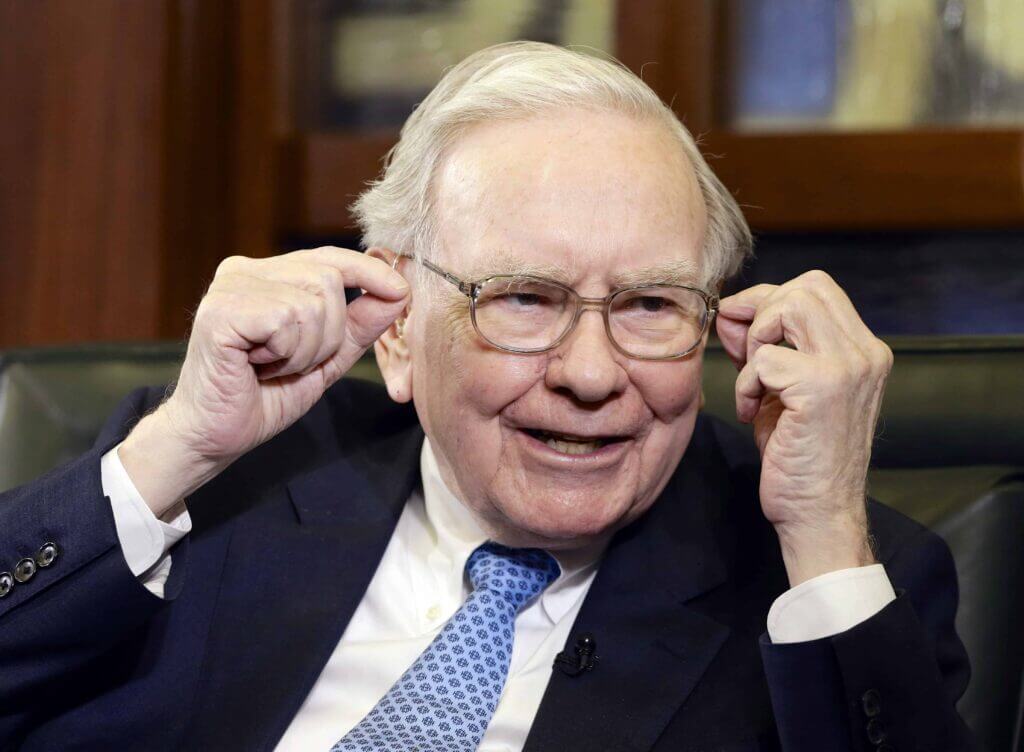What is the Efficient Market Hypothesis (EMH)?
| Updated: |(Disclosure: Some of the links below may be affiliate links)
Today, we talk about the Efficient Market Hypothesis (EMH). Have you ever heard about EMH? Do you know what it is?
Behind this complicated name hides a simple hypothesis. EMH says that the market is very efficient. So the stock prices reflect all available information. It means that stocks always trade at a fair value.
The Efficient Market Hypothesis is interesting. It is also very controversial. Based on whether it is true or not can profoundly change the way you are investing. This hypothesis has many implications, as we see in this article.
So, we will delve into exactly what this hypothesis is about.
The Efficient Market Hypothesis (EMH)?

The Efficient Market Hypothesis is a theory about the stock market. It says that the stock market already prices in all available information. It means that stock prices are always reflecting the fair value of each company. So the fair value of a stock equals its trading price.
This theory has several significant implications.
First, based on this theory, it is impossible to find undervalued stocks. Since the market already uses all the information, you cannot find an undervalued one. Indeed, the stock price is already the fair value of the company. Inversely, you cannot sell stocks for inflated prices. This goes completely against the concept of value investing.
Based on this, if the Efficient Market Hypothesis is correct, it is impossible to beat the market. So, you should invest in a broad stock market index instead of trying to pick stocks. Investing in such funds is known as passive investing. Believers of passive investing often cite EMH as why passive investing is always better than active investing.
According to EMH, the only way to beat the market is to have inside information about a stock. Trading like this is called insider trading. But this is illegal.
Otherwise, the only way to get above-average returns is to increase your risks. But in that case, we are not comparing the same things.
EMH and Random Walks

The EMH theory is often associated with a random walk in the stock market prices.
A random walk is a price series where all price changes are random departures of previous prices. All the information is directly reflected in stock prices. So, the stock prices of tomorrow are only based on the news of tomorrow and not on the prices of today. And, since the news is not predictable, prices are not predictable but random.
So, if the stock market prices follow a random walk pattern, it is impossible to predict tomorrow’s prices.
Variations of the hypothesis
In economic literature, you are likely to find three different forms of the Efficient Market Hypothesis. You do not have to worry too much about these forms. These are small details. But I will include them here for completeness.
With the weak form, stock prices reflect all past available information. And stock prices are completely independent of past prices. With this form, fundamental analysis can work in the short term. But any technical analysis will not work.
With the semi-strong form, it is assumed that all available public information is directly reflected in stock prices. In this form, even fundamental analysis cannot beat the market.
Finally, the strong form assumes that all available information is reflected in the stock prices. Even insider trading will not allow you to beat the market. The strong form assumes a perfect market. This form is unlikely to be true since there are insider trading restrictions in most countries.
Generally, the semi-strong form is the one that people talk about. It is also the most reasonable of the three forms.
History of the Efficient Market Hypothesis?
The EMH theory is not new. It is much older than people think.
The first reference to this hypothesis appears in the Ph.D. thesis of Louis Bachelier, The Theory of Speculation. This thesis dates from 1900. He also published a book in 1912. The book and the thesis have been cited many times in financial research.
Until the 1960s, the theory was not popular. It started becoming popular among economists beginning in the mid-1960s. But it started becoming controversial again with the last of the 21st century.
It is only recently that it started becoming popular with the public. Several big blogs used this theory as the foundation for promoting passive investing. In the last decade, passive investing is becoming more and more popular. It also made the Efficient Market Hypothesis more popular.
Is the hypothesis true?
Now, this is just a hypothesis. Is the EMH Theory true?
Unfortunately, we do not know that. There is no known way to prove the hypothesis, nor is there is any known way to disprove it. As such, there is a lot of controversy around the EMH.
There is a lot of empirical evidence that supports the hypothesis. But, there are also some exceptions to the Efficient Market Hypothesis. If the hypothesis was completely accurate, many things would not have been possible.
Advocates of the hypothesis
There are many advocates of the theory.
Their main argument for believing in this theory is empirical evidence from funds. We can observe that most managers of active funds do not outperform the market in the long term.
John Bogle already showed it. He worked on several papers and books outlining that active funds do not outperform the market. So, it is better to invest in low-cost index funds.
Proponents of the hypothesis

As with each unproved theory, there are also some critics of the theory.
First, there have been people who have beaten the market for a long time. Warren Buffett is an excellent example of this. He did beat the market returns for several decades. And Warren Buffett also openly criticized the Efficient Market Hypothesis. He is saying that there are many inefficiencies in the market. And he is even saying that investors can beat the market significantly.
There have been other investors who beat the market consistently. According to the theory, only blind luck could have made this happen. But blind luck cannot explain that the same investors can beat the market consistently, year after year.
Many of the stock market crashes are impossible to explain with the EMH theory. Under the theory’s assumptions, the stock market crashes of the Great Depression and the Dotcom Bubble should not have happened. Indeed, if stocks are fairly priced, we should have good information as to the reason a crash is starting. But many stock market crashes are based on fear, not on the efficiency of the market.
For instance, several people claim that The Great Depression was caused by too much belief in EMH. People were too confident in the efficiency of the stock market and invested irrationally. And this irrationality caused the market crash.
A middle ground
The best resource I have found on the subject is The Efficient Market Hypothesis and its Critics, by Burton G. Malkiel. He is the author of a Random Walk down Wall Street. His paper on the theory is well-written and contains a wealth of information.
Malkiel is an advocate of the theory and recommends people to invest in broad index funds. However, he also recognizes that the theory has some limits. There will always be some inefficiencies in the market. And some periods will be more or less efficient than others.
There are some psychological and behavioral factors influencing stock market prices. But Malkiel argues that these factors are also random.
For instance, several bubbles in the stock market were not efficient. But hopefully, these bubbles are the exception rather than the rule. And overall, the market will be efficient in considering the available information.
I think this is an excellent view of the Efficient Market Hypothesis. People should not blindly follow this theory. But they should not reject it either. Even if there are some small inefficiencies in the market, this does not mean we can easily beat the market. The market is efficient up to a certain measure.
Implications of the hypothesis
What does the Efficient Market Hypothesis mean for investors?
It does not mean anything we have not already covered on this blog. Since it is impossible, or at least extremely hard, to predict the stock market prices, we should not try. Therefore, investors should invest in broad index funds.
There are many advantages to passive investing:
- It is simple. You only hold a few mutual funds or Exchange Traded Funds (ETFs).
- It is cheap if you choose your funds carefully.
- You are getting the returns of the market
- You are more diversified than when investing in a few stocks
All these advantages and the fact that the market is already very efficient makes passive investing the best candidate for most people. There will always be people picking stocks. But most people should focus on index funds.
Conclusion
The Efficient Market Hypothesis states that the stock market is very efficient. It is so efficient that it already takes all information into account. If the hypothesis is correct, it should be impossible to beat the market, especially in the long term.
I think the market is efficient. But I do not believe it is without inefficiencies. I believe there are a lot of human factors playing a role in stock prices. And these human factors can be wrong.
Even though I do not believe the EMH theory is entirely accurate, I still believe passive investing is the way to go! The market is very efficient. As such, it is challenging to find opportunities to beat it consistently. Moreover, it is so much simpler to invest in an index fund.
To learn more about investing, learn how to design a passive portfolio.
What do you think about the Efficient Market Hypothesis?
Download this e-book and optimize your finances and save money by using the best financial services available in Switzerland!
Download The FREE e-bookRecommended reading
- More articles about Investing Fundamentals
- More articles about Investing
- ETF Portfolio with European ETFs for 2024
- Value Investing: What is it? And should you do it?
- Financial advisors – Do not get ripped off

I go back and forth with this one all the time. In large, I think the market is very rationale and it is tough to “beat” it, hence the Bogle and Buffett remarks. But, there are likely small inefficiencies from time to time that you can find if you have the resources to find them.
Either way, at the end of the day, investing in broad funds for the long term is a proven strategy for success. Stock picking is not.
Hi Kevin,
I completely agree with you :)
Stock Picking is fun, but it’s gambling. Let’s stick to broad index funds :)
Thanks for stopping by!
I think the market is efficient but on long run. It can be inefficjent some time,but on long run it become efficient.
Thats why is possible to find undervalue stock, but after some time undervalue stock will reach right value.
Hi Luka,
I also think like you!
The market is very efficient but only in the long-term. There may be some inefficiencies and even some big ones, but they should become insignificant in the long-run.
Thanks for stopping by!